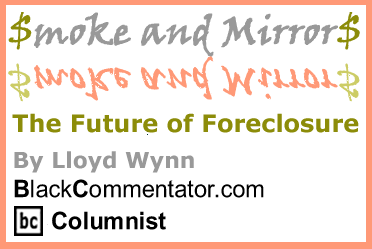If there is any lingering doubt about the state
of the US
economy, the Federal Reserve Chairman cleared that issue up
May 13, 2008, in a speech to an Atlanta Fed conference. Chairman
Ben Bernanke said, “financial markets remain unsettled” and
“far from normal”. Contrast Bernanke’s statements with pronouncements
by Treasury Secretary Henry Paulson and CEO’s of Wall Street’s
largest investment houses, Citigroup, Chase, and Lehman Bros.
Last week Paulson and crew stated the worst of the crisis is
over. Herbert Hoover consistently told citizens during the beginning
of the depression, the economy is fine, the worst is behind
us, not unlike what is going on in the Bush Administration today.
But Chairman Bernanke left no uncertainty about the condition
of the markets in his Atlanta remarks when he said it will take some time for the financial
sector to resolve this crisis.

On the same day of Bernanke’s speech, news about
the housing market was not so promising. The median price of
homes fell 7.7% in the first quarter of this year, the largest
decline in 29 years, according to the National Association of
Realtors (NAR). Home prices declined by 28% or more in 3 California
metro areas. In Lansing, Michigan
and San Diego, there
was a 27% and 23% decline, respectively. The median price of
a home fell in 100 of the 149 metropolitan areas observed by
NAR. Equally distressing are the sales of single-family homes
and condominiums that have declined by 22%. 46 states and the
District of Columbia experienced a decline
in sales led by Maryland with 39%, the
District of Columbia by 35%, followed by
Utah with 34% and California dropped 33%.
 Alas,
the last bit of news before the fed chief’s advice. In the May
12, 2008 of the Washington Post’s Business section, featured were comments by
leaders of the area’s largest businesses and organizations.
I found the remarks by Fannie Mae’s interim chief financial
officer to be very revealing about what that company’s goals
are regarding the housing crisis.
Alas,
the last bit of news before the fed chief’s advice. In the May
12, 2008 of the Washington Post’s Business section, featured were comments by
leaders of the area’s largest businesses and organizations.
I found the remarks by Fannie Mae’s interim chief financial
officer to be very revealing about what that company’s goals
are regarding the housing crisis.  Mr.
Levin indicated that Fannie Mae was “very focused on identifying
and attacking the trouble spots in the business.” He quickly
pointed out Florida as an example of a state that is overbuilt and has a very high
delinquency rate. According to Mr. Levin, Fannie Mae’s strategy
is, “first, we are making sure every delinquent borrower is
contacted and offered a work-out. Secondly, we are performing
underwriting reviews on defaulted loans and if the loans were
not underwritten to our guidelines, we will require the servicer
to buy them back or make us whole. And third, we are pursuing
deficiency judgments against investors and second-home borrowers”.
Wrong! Wrong! Wrong!
Mr.
Levin indicated that Fannie Mae was “very focused on identifying
and attacking the trouble spots in the business.” He quickly
pointed out Florida as an example of a state that is overbuilt and has a very high
delinquency rate. According to Mr. Levin, Fannie Mae’s strategy
is, “first, we are making sure every delinquent borrower is
contacted and offered a work-out. Secondly, we are performing
underwriting reviews on defaulted loans and if the loans were
not underwritten to our guidelines, we will require the servicer
to buy them back or make us whole. And third, we are pursuing
deficiency judgments against investors and second-home borrowers”.
Wrong! Wrong! Wrong!
 Fannie
Mae is talking about a workout and the House passed a bill last
week for homeowner bailouts. Both measures are doomed
to failure since they lack a key component to resolving this
crisis - how to stop the foreclosures and reduce the number
of homes in inventory. In the absence of some strong policy
to reverse the disturbing upward trend in foreclosures, home
prices will continue to decline. Information from the Center
for Responsible Lending, suggests homeowners who live near a
home that is foreclosed on by the lender, can expect to see
their values drop by an average of $5,000. NAR has released
data to support a 7.7% decline in home prices in the first quarter.
Fannie
Mae is talking about a workout and the House passed a bill last
week for homeowner bailouts. Both measures are doomed
to failure since they lack a key component to resolving this
crisis - how to stop the foreclosures and reduce the number
of homes in inventory. In the absence of some strong policy
to reverse the disturbing upward trend in foreclosures, home
prices will continue to decline. Information from the Center
for Responsible Lending, suggests homeowners who live near a
home that is foreclosed on by the lender, can expect to see
their values drop by an average of $5,000. NAR has released
data to support a 7.7% decline in home prices in the first quarter.
 How
much more can we expect prices to decline in light of information
that foreclosures doubled in the first quarter and Congress,
the President or the Fed do not have a coherent strategy for
resolving the foreclosure issue (the elephant in the room)?
Thus, it makes absolutely no economic sense to workout or bailout
a homeowner at today’s market value and then 6-12 months in
the future find that borrower is upside down in their house
again.
How
much more can we expect prices to decline in light of information
that foreclosures doubled in the first quarter and Congress,
the President or the Fed do not have a coherent strategy for
resolving the foreclosure issue (the elephant in the room)?
Thus, it makes absolutely no economic sense to workout or bailout
a homeowner at today’s market value and then 6-12 months in
the future find that borrower is upside down in their house
again.

The next two strategies - buybacks and deficiency
judgments - talked about by Fannie Mae’s interim chief financial
officer are utterly ridiculous. To the extent Fannie wants to
engage in the blame game, Fannie should take a look in the mirror
and from there, set her sights on the likes of Standard &
Poors, Moodys and Fitch and Wall Street intermediaries.
Bernanke’s advice to banking institutions: de-leverage,
raise new capital and assume good risk management strategies.
BlackCommentator.com Columnist, Lloyd Wynn was a consultant in the secondary market. Lloyd is the author of Residential Real Estate Finance: From
Application Through Settlement. Click
here to contact Lloyd Wynn.



































 Alas,
the last bit of news before the fed chief’s advice. In the May
12, 2008 of the
Alas,
the last bit of news before the fed chief’s advice. In the May
12, 2008 of the 
 Fannie
Mae is talking about a workout and the House passed a bill last
week for homeowner bailouts. Both measures are doomed
to failure since they lack a key component to resolving this
crisis - how to stop the foreclosures and reduce the number
of homes in inventory. In the absence of some strong policy
to reverse the disturbing upward trend in foreclosures, home
prices will continue to decline. Information from the Center
for Responsible Lending, suggests homeowners who live near a
home that is foreclosed on by the lender, can expect to see
their values drop by an average of $5,000. NAR has released
data to support a 7.7% decline in home prices in the first quarter.
Fannie
Mae is talking about a workout and the House passed a bill last
week for homeowner bailouts. Both measures are doomed
to failure since they lack a key component to resolving this
crisis - how to stop the foreclosures and reduce the number
of homes in inventory. In the absence of some strong policy
to reverse the disturbing upward trend in foreclosures, home
prices will continue to decline. Information from the Center
for Responsible Lending, suggests homeowners who live near a
home that is foreclosed on by the lender, can expect to see
their values drop by an average of $5,000. NAR has released
data to support a 7.7% decline in home prices in the first quarter.








